The Alliance maintains a growing library of resources on climate finance and sustainability risk management. Our publication library provides cross-cutting knowledge, tools, and business information to empower financial institutions to develop green finance roadmaps.
FEATURED PUBLICATION
-
Defining an Ambitious Climate Strategy of Green Banking: A Case Study
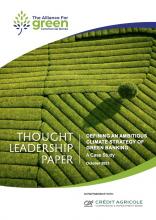
The sustainable finance market has seen a steady development in the last decade, experiencing a phase of exponential growth. The increasing severity, frequency, and impacts of climate change have put more pressure on financial institutions to recognize their role in catalyzing a more sustainable and low-carbon future. Issued by Crédit Agricole CIB and the Alliance, the paper expounds a “Five-Step-Approach” to guide the process of transformation towards green banking, inspired by Crédit Agricole CIB's own experience in setting up the strategy and governance in its transition towards green banking, as well as supporting clients in their transition journey. The paper also reveals the core elements of green banking practices and the relevant key practices of Crédit Agricole CIB, drawing references from international advocacy groups, regulatory guidelines, and the experiences of market leaders. The paper is also the first-of-its kind in the whitepaper series led by the Alliance.
Learn More
-
Rethinking Resilience: Adapting to a Changing Climate
December 10, 2025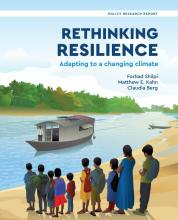
This policy research report by the World Bank Group explains how developing countries can build resilience by moving from reactive relief to proactive adaptation that requires a multi-layered strategy.
Learn More -
Guidelines for Blue Finance (Version 2.0)
November 27, 2025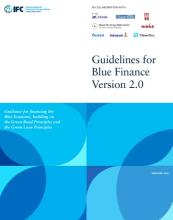
The ocean economy sustains over 100 million jobs globally and is expected to contribute more than $5 trillion to the global economy by 2050. Innovative financing solutions are key to enhancing ocean and coastal preservation and increasing clean water resources, and Blue Finance has a huge potential to help realize these goals. IFC’s first Guidelines for Blue Finance, launched in 2022, identified eligible blue project categories to guide IFC’s investments to support the blue economy, in line with the Green Bond Principles and Green Loan Principles.
Learn More -
Jobs in a Changing Climate: Insights from World Bank Group Country Climate and Development Reports (CCDRs) covering 93 economies
November 07, 2025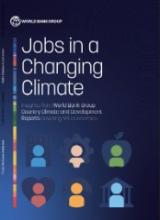
The report, which draws on evidence from CCDRs representing 64 percent of the population and 77 percent of the GDP of low- and middle-income countries, demonstrates ways that countries can integrate their own climate and development goals to drive job creation, economic growth, and resilience.
Learn More -
Reboot Development: The Economics of a Livable Planet
September 09, 2025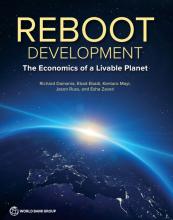
Degraded natural wealth is not just an environmental problem, it is also an economic liability. But achieving economic growth without harming the environment is not only possible but has already been demonstrated by some countries. A cleaner economy can also create more jobs. Find out about how policymakers can connect the dots across land, air, and water sectors to drive strong, sustainable economic growth at the national-level and unlock major global benefits.
Learn More -
Innovation in Green Technologies
July 01, 2025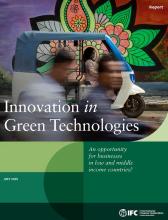
Emerging market economies are claiming a rising share of trade in products associated with the new technologies that help reduce pollution, limit greenhouse gas emissions, and help mitigate the impact of extreme weather.
Learn More -
Emerging Market Green Bonds 2024
June 05, 2025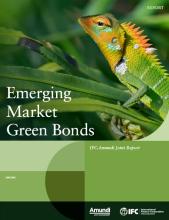
The seventh edition of the IFC-Amundi Green Bond report shows GSSS bond issuance hit a record $1 trillion in 2024, a 3 percent advance on the previous year. Global momentum is helping underpin sales in emerging markets, though 2024 did see lower GSSS bond volumes in developing economies.
Learn More -
Harmonized Circular Economy Finance Guidelines
May 15, 2025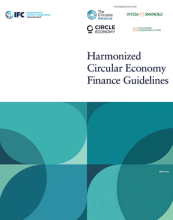
Harmonized Circular Economy Finance Guidelines aims to help investors, financial institutions and private companies identify and quantify opportunities to channel financing to projects that support a circular economy. It provides guidance to identify activities that are eligible for circular economy finance.
Learn More -
Unlocking Opportunities: A Framework for Assessing Green Hydrogen Potential in Emerging Markets
May 08, 2025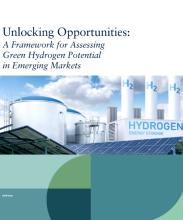
Unlocking Opportunities: A Framework for Assessing Green Hydrogen Potential in Emerging Markets provides a framework for developers, investors, and policymakers to explore the potential of green hydrogen and create opportunities for new industries, foster job creation, and enhance resilience to address global challenges.
Learn More -
IFC Green and Social Bond Impact Report - FY24
April 08, 2025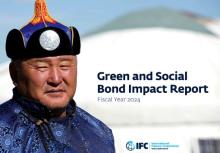
IFC’s annual Green and Social Bond Impact Report publishes a list of projects in emerging markets that have been funded through the proceeds of our green and social bonds. Green and social bonds are an integral component of IFC’s borrowing strategy, facilitating the financing of projects that drive positive social outcomes and contribute to a greener, more sustainable future.
Learn More -
ICMA Recommendations for Reporting under SFTR (March 2025 version)
March 05, 2025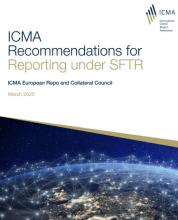
This comprehensive document aids firms in interpreting the regulatory reporting frameworks specified by the European Securities and Markets Authority (ESMA) and the UK Financial Conduct Authority (FCA), providing best practice recommendations to clarify ambiguities in official guidance.
Learn More

